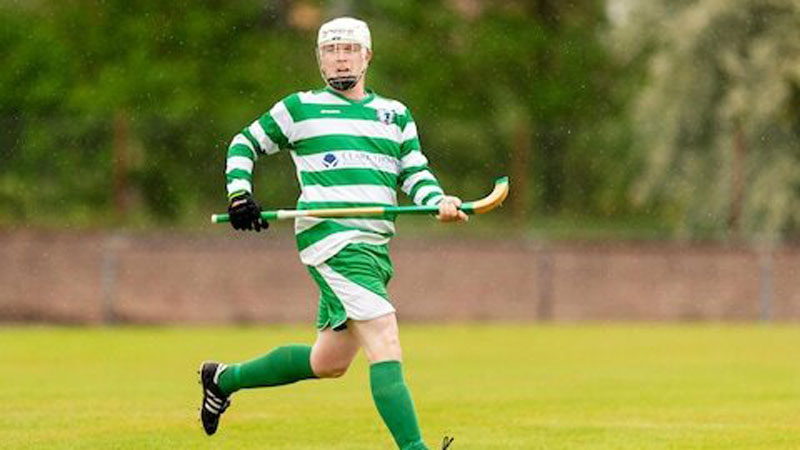World Handicap System In UK Set For November 2020
With golf’s new World Handicap System set to hit our fairways in 2020, we assess the progress towards its implementation and bust a few myths along the way


With golf’s new World Handicap System set to hit our fairways in 2020, we assess the progress towards its implementation and bust a few myths along the way
World Handicap System In UK Set For November 2020
Wild swings in handicap; no more social golf; possible manipulation of the system; chaos at unprepared clubs... just a few of the scare stories circulating since the announcement of the World Handicap System (WHS) by The R&A and USGA in early 2018.
I must confess to having nodded along to some of these during debates on the shift to an average system of handicap calculation.
I wanted to find out more about how the WHS will affect golf and how things are progressing, so I spoke to Claire Bates, director – handicapping R&A, and Gemma Hunter, head of handicapping and course rating for England Golf and CONGU’s technical committee chairwoman.
I found that the myths are just that and that, despite setting out here with scepticism, I now believe the change, even if significant, will be hugely positive for golf.
The WHS is still set to be ready for implementation on January 1, 2020, but this doesn’t mean it will be rolled out on that date universally.
Get the Golf Monthly Newsletter
Subscribe to the Golf Monthly newsletter to stay up to date with all the latest tour news, equipment news, reviews, head-to-heads and buyer’s guides from our team of experienced experts.
“We’re on track to be ready by the end of this year,” says Bates.
“Then it will be up to national associations to decide the right time to launch. Some countries will be in a position to do so quickly; others will need more time.
"We’ll support them to make the change when ready.”
So, golfers in this country needn’t worry that we will be making the switch immediately, nor that clubs will be unprepared.
“From an England Golf perspective – and I believe the other unions are on the same page – the date we are looking at is November 1, 2020,” says Hunter.
“We want to make sure we have had enough time to complete all the course ratings and to educate all the clubs and golfers to allay those concerns and myths.”
Perhaps the biggest of those WHS myths is that each round you play will count for handicap.
“I always wonder where that came from,” says Hunter.
“We’ve always said there will be a master list of acceptable scores, and we’ll select from that. The more scores a player submits, the more reflective their handicap will be, but the key thing will be pre-registration. Golfers must pre-register for any counting round so they will not be able to be selective in scores submitted.”
This is very important. There are choices within the WHS and, from the outset, the objective was to enable each national association to ensure the way golf is played in its jurisdiction didn’t alter.
“We didn’t want to force change on the way golf is played,” says Bates.
“We wanted to accommodate different cultures and the different ways golf is enjoyed around the world.”
Another concern has been the possibility of large handicap fluctuations, the fear being that, with the best eight of the last 20 scores used to calculate the average, people playing a lot could have a very different handicap from one month to the next.
This won’t happen, as Bates explains.
“We’ve built in the concept of memory,” she says.
“Your lowest handicap index from the last 12 months will act as a reference point.
"If your current index has moved too far upwards, that reference point will trigger a recalculation.
"A hard cap will be in place in extreme cases.”
And what about the effect of conditions – something that plays a big part in golf in this country in particular?
“The mechanism for this will take account of the entire field playing that day, whatever tees they play off,” says Bates.
“There will be an expectation of how that field will play on a normal day under normal conditions.
"The actual scores will be compared to those expectations and adjustments for abnormal playing conditions will be made via a Playing Conditions Calculation or PCC.”
In essence, then, broadly similar to the current CSS.
I’ve come to realise that golfers in this country shouldn’t fear the WHS.
The governing bodies have been working tirelessly to cover every avenue to ensure it works effectively and the move will not take place until the time is right.
It’s a change, yes, but change is often for the best.
If golf never changed, we’d still be knocking pebbles into rabbit holes.
The WHS offers the chance for a fresh start via a universal system that should be more reflective of current ability for a greater percentage of golfers.
It’s the right track for golf.
Expand World Handicap System Explained: What Does It Mean For You?

World Handicap System Explained: What Does It Mean For You?
In 2020, a new World Handicap System will…
Expand 30 Golfing Milestones – How Many Have You Ticked Off?

30 Golfing Milestones – How Many Have You Ticked Off?
Golf is a game of milestones - how…
Expand How To Spot A Golf Cheat

In this feature on how to spot a…
For all the latest golf news, check the Golf Monthly website and follow our social media channels

Fergus is Golf Monthly's resident expert on the history of the game and has written extensively on that subject. He has also worked with Golf Monthly to produce a podcast series. Called 18 Majors: The Golf History Show it offers new and in-depth perspectives on some of the most important moments in golf's long history. You can find all the details about it here.
He is a golf obsessive and 1-handicapper. Growing up in the North East of Scotland, golf runs through his veins and his passion for the sport was bolstered during his time at St Andrews university studying history. He went on to earn a post graduate diploma from the London School of Journalism. Fergus has worked for Golf Monthly since 2004 and has written two books on the game; "Great Golf Debates" together with Jezz Ellwood of Golf Monthly and the history section of "The Ultimate Golf Book" together with Neil Tappin , also of Golf Monthly.
Fergus once shanked a ball from just over Granny Clark's Wynd on the 18th of the Old Course that struck the St Andrews Golf Club and rebounded into the Valley of Sin, from where he saved par. Who says there's no golfing god?
-
 Watch Bryson DeChambeau Smash 400+ Yard Monster Drive In LIV Golf Mexico Practice
Watch Bryson DeChambeau Smash 400+ Yard Monster Drive In LIV Golf Mexico PracticeDeChambeau is hitting mega drives this week in the 7,800ft altitude setting of Golf Club de Chapultepec in Mexico City
By Elliott Heath
-
 Tiger Woods Heads 8 Golfers To Make All Time Rich List Of Top 50 Highest Paid Athletes
Tiger Woods Heads 8 Golfers To Make All Time Rich List Of Top 50 Highest Paid AthletesTiger Woods is the second highest paid athlete of all time behind only Michael Jordan in a new top 50 rich list from Sportico
By Paul Higham
-
 Is This FootJoy's Most Exciting New Golf Shoe In Years?
Is This FootJoy's Most Exciting New Golf Shoe In Years?Dan Parker discusses whether the new FootJoy Fuel golf shoe has the potential to be FootJoy's most exciting to date...
By Dan Parker
-
 Governing Bodies Crack Down On Distance As Driver Shaft Lengths Limited
Governing Bodies Crack Down On Distance As Driver Shaft Lengths LimitedThe R&A and USGA have introduced a new local rule to ensure professionals and elite amateurs do not use 48-inch driver shafts
By Elliott Heath
-
 Five-Year-Old Prodigy Raising Money And Awareness For Organ Donation
Five-Year-Old Prodigy Raising Money And Awareness For Organ DonationGeorge is taking on the challenge to raise money and awareness for organ donation
By Andrew Wright
-
 Robert MacIntyre Returns To Shinty After Ryder Cup Disappointment
Robert MacIntyre Returns To Shinty After Ryder Cup DisappointmentThe left-hander has been in action for his local shinty side, Oban Celtic
By Andrew Wright
-
 Pro Plays 36 Holes In Under 80 Minutes To Win British Speedgolf Championship
Pro Plays 36 Holes In Under 80 Minutes To Win British Speedgolf ChampionshipBuckinghamshire professional Luke Willett took the British Speedgolf title
By Fergus Bisset
-
 "A Real Kick In The Teeth" - Greenkeeper After "Embarrassment" Course Comments
"A Real Kick In The Teeth" - Greenkeeper After "Embarrassment" Course CommentsWe chat to James Tibbles, head greenkeeper at Andover GC, after he was subject to negative comments on the course's condition
By Elliott Heath
-
 Tiger Woods' 2002 Backup Putter Sells For $393,300
Tiger Woods' 2002 Backup Putter Sells For $393,300Tiger Woods' 2002 Backup Putter Sells For $393,300
By Matt Cradock
-
 Olivia Lee Wins 2021 Peter McEvoy Trophy
Olivia Lee Wins 2021 Peter McEvoy TrophyOlivia Lee has become the first female to win the historic Peter McEvoy Trophy.
By Dan Parker